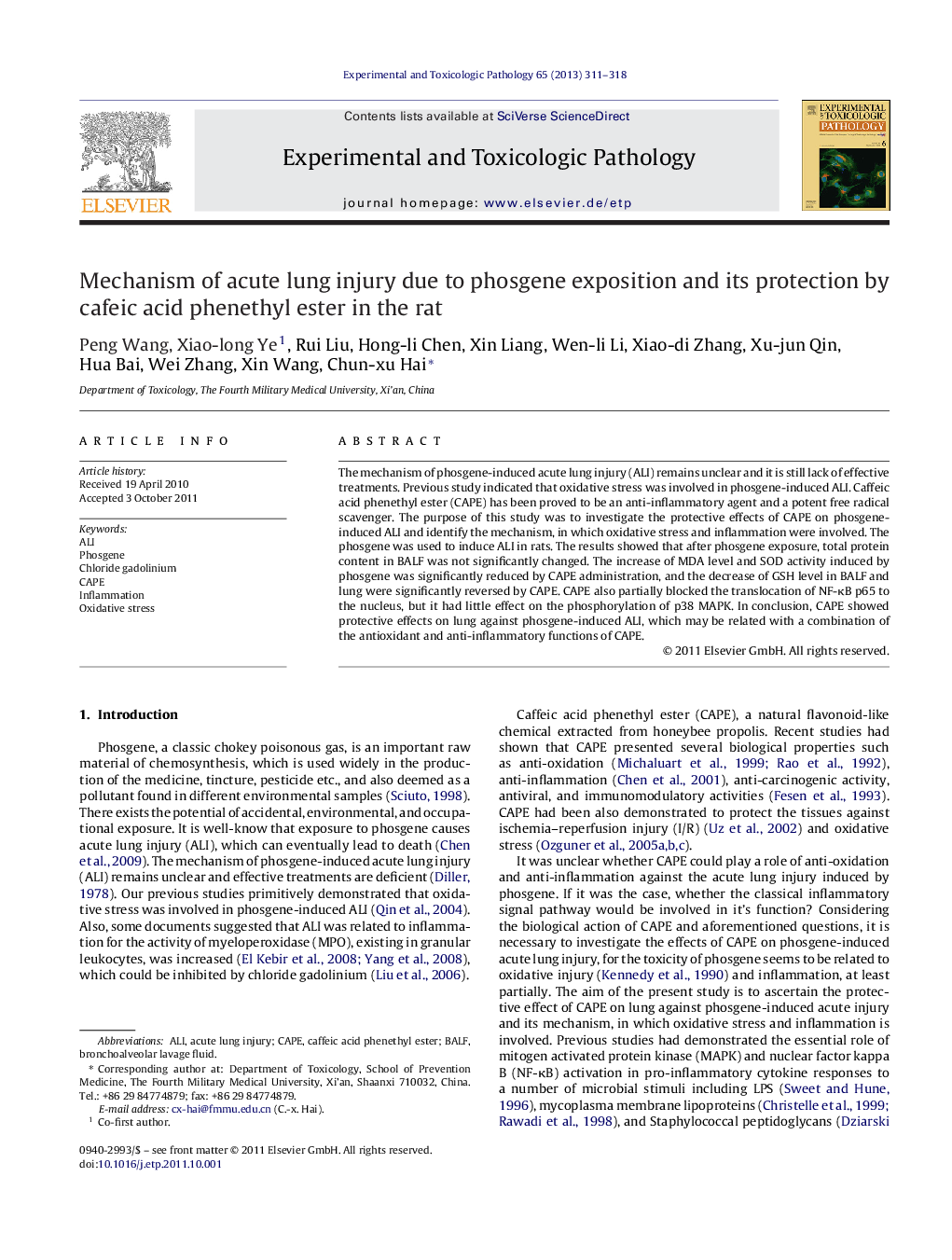| Article ID | Journal | Published Year | Pages | File Type |
|---|---|---|---|---|
| 2499223 | Experimental and Toxicologic Pathology | 2013 | 8 Pages |
The mechanism of phosgene-induced acute lung injury (ALI) remains unclear and it is still lack of effective treatments. Previous study indicated that oxidative stress was involved in phosgene-induced ALI. Caffeic acid phenethyl ester (CAPE) has been proved to be an anti-inflammatory agent and a potent free radical scavenger. The purpose of this study was to investigate the protective effects of CAPE on phosgene-induced ALI and identify the mechanism, in which oxidative stress and inflammation were involved. The phosgene was used to induce ALI in rats. The results showed that after phosgene exposure, total protein content in BALF was not significantly changed. The increase of MDA level and SOD activity induced by phosgene was significantly reduced by CAPE administration, and the decrease of GSH level in BALF and lung were significantly reversed by CAPE. CAPE also partially blocked the translocation of NF-κB p65 to the nucleus, but it had little effect on the phosphorylation of p38 MAPK. In conclusion, CAPE showed protective effects on lung against phosgene-induced ALI, which may be related with a combination of the antioxidant and anti-inflammatory functions of CAPE.
